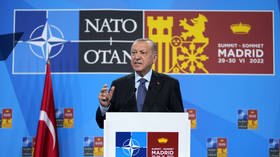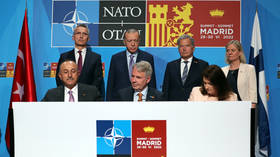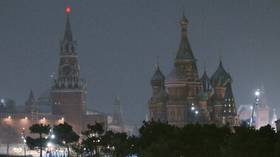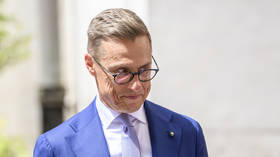NATO applicants respond to Turkey over extradition
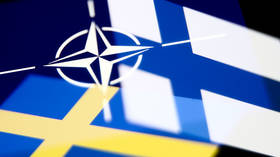
There will be no fast-tracked extraditions of “terrorism” suspects to Turkey, Finland and Sweden have signaled after the two Nordic nations reached a deal with Ankara to resolve their NATO bid deadlock. This week, Turkey and the two prospective members reached a 10-point agreement, which addressed groups Ankara deems to be “terrorists” and an end to the current arms embargo.
“The agreement by Finland, Turkey and Sweden is about facilitating extradition, but mentions that it takes place in accordance with European extradition agreements,” Foreign Minister Pekka Haavisto explained in an interview with Yle broadcaster on Friday.
The country did not make any concrete pledges on extraditions and no list of wanted individuals was agreed during talks with Turkey, the top diplomat said. All in all, the country has received 12 extradition requests from Turkey in the past five years and they are still being processed. Surrendering Finland’s own citizens is out of the question as well, Haavisto noted without saying whether Ankara is seeking such individuals.
“When we talk about extraditions, it requires that the person has committed a terrorist crime or preparation for such a crime, proven in Finland,” Haavisto said. “Moreover, according to Finland’s commitments, we cannot send anyone to the death penalty or torture.”
A similar stance has been outlined by Sweden as well. “In Sweden, Swedish law is applied by independent courts. Swedish citizens are not extradited. Non-Swedish citizens can be extradited at the request of other countries, but only if it is compatible with Swedish law and the European Convention,” Justice Minister Morgan Johansson told AFP on Thursday.
While Turkey reached a deal with the two Nordic nations this week to resolve their differences and lift Ankara’s roadblock on their NATO accession, President Recep Tayyip Erdogan threatened to block the process again should Ankara’s demands not be met.
“The key thing is for promises to come true,” Erdogan said during a press conference at the end of a NATO summit in Madrid on Thursday. “First Sweden and Finland should carry out their duties and those are in the text… But if they don’t, of course it is out of the question for the ratification to be sent to our parliament,” he added.
Finland and Sweden scrambled to join the US-led NATO bloc amid the ongoing conflict between Russia and Ukraine. The two Nordic nations have maintained close ties with the alliance for decades already, but remained formally neutral until now.
Their NATO drive, however, ran into a deadlock when Turkey voiced concerns over the two nations harboring members of groups it deems to be “terrorists.” Those groups include the outlawed Kurdistan Workers’ Party (PKK), which has been waging a low-intensity insurgence against the Turkish government for decades, and the so-called Fethullah Gulen Terrorist Organization (FETO). This group is said to be led by the US-based Turkish cleric, who has been named by Ankara as the culprit behind the botched 2016 attempt to depose Erdogan.
